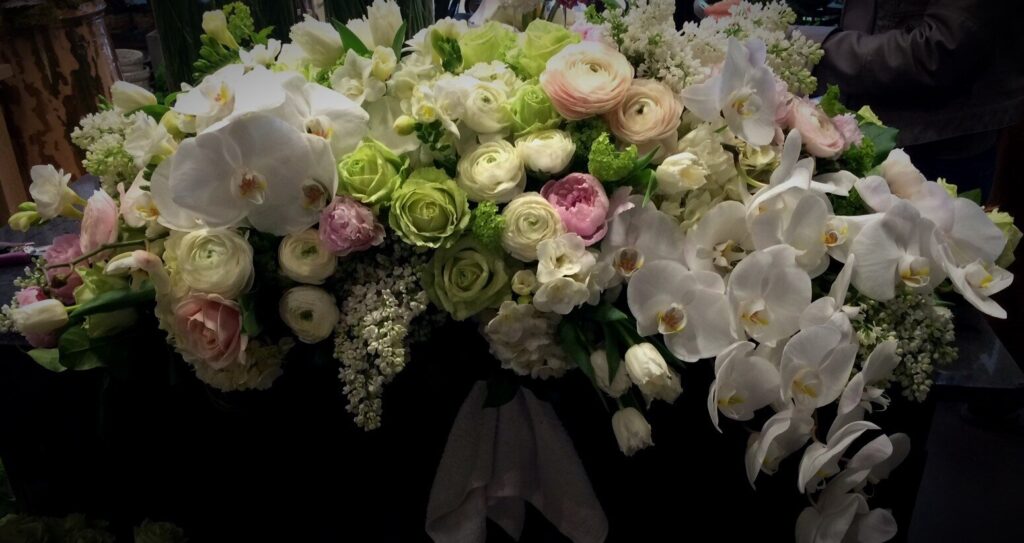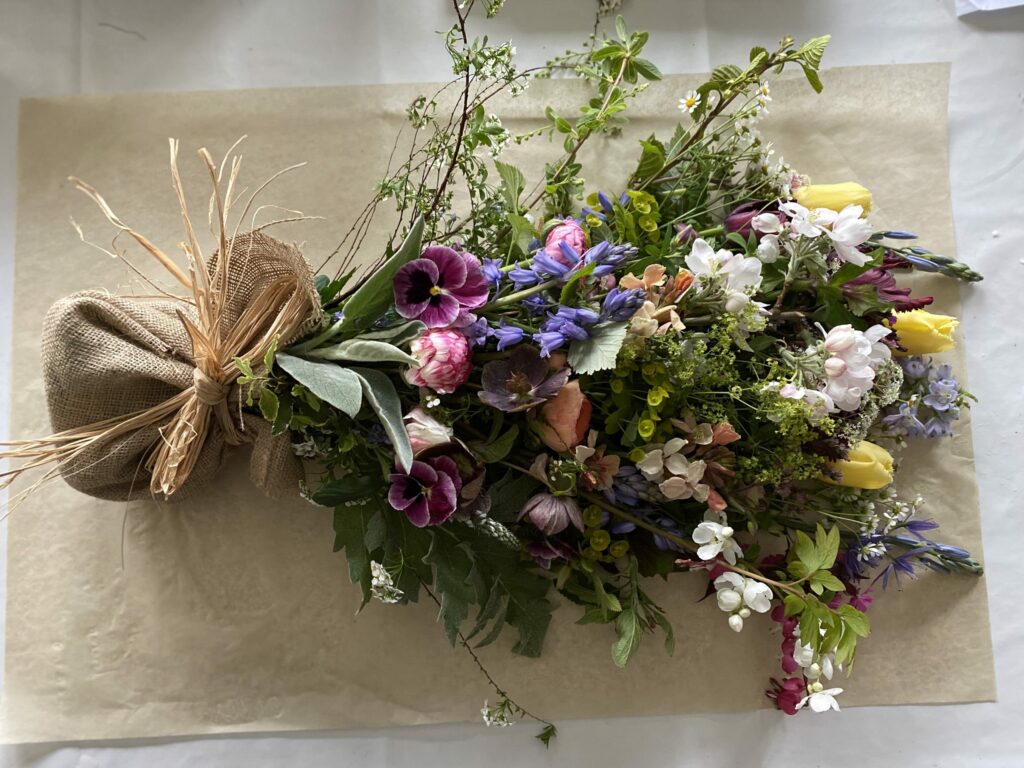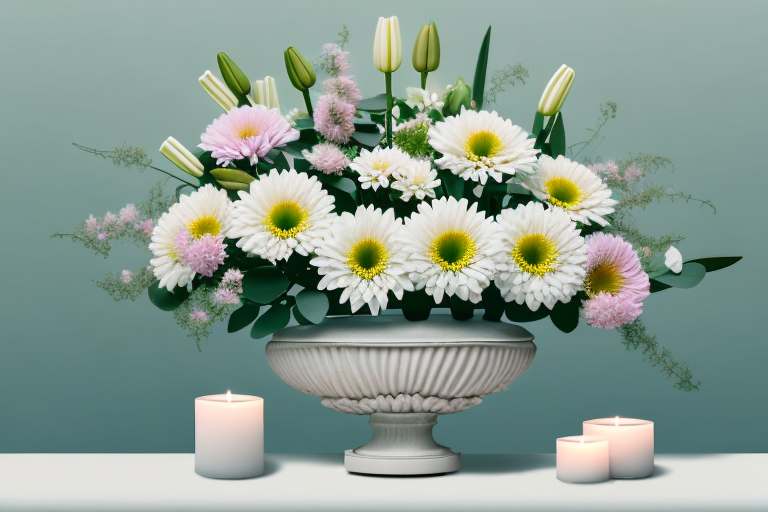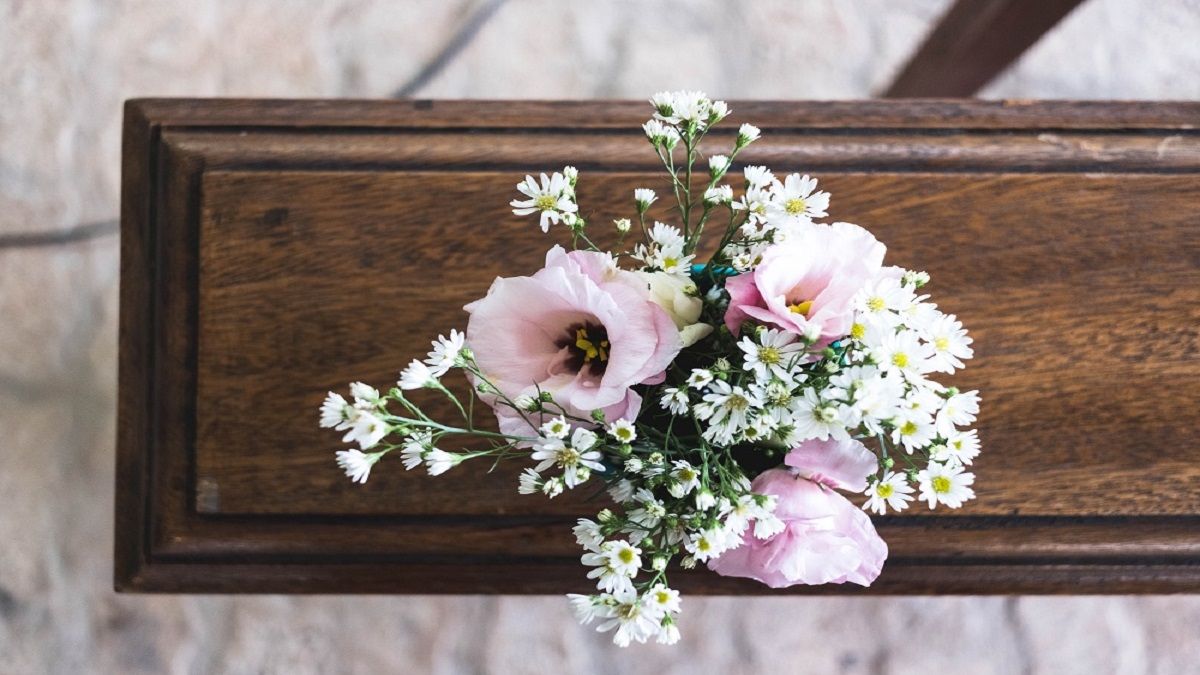In times of loss and mourning, funeral flowers play a significant role in bringing solace and comfort to those who are grieving. These carefully chosen floral arrangements not only beautify the surroundings but also carry deep meaning and symbolism that can bring solace and healing to the bereaved. Understanding the significance of funeral flowers and the art of arranging them can provide a powerful outlet for emotional expression, while also aiding in the healing process.
Understanding the Role of Funeral Flowers in Mourning
When attending a funeral or memorial service, one cannot help but notice the presence of flowers. These floral tributes serve as a heartfelt expression of sympathy, conveying emotions and unspoken words when mere words seem inadequate. The thoughtful selection of funeral flowers can provide a powerful means of communication and offer solace to both the bereaved and those gathered to pay their respects.
Funeral flowers not only add beauty to the somber atmosphere but also hold deep symbolism, carrying messages that words may fail to convey. Each flower carries its own unique symbolism, reflecting a range of emotions and sentiments. For example, lilies are often used to represent purity and innocence, their elegant white petals serving as a reminder of the departed’s virtuous nature. Roses, on the other hand, symbolize love and remembrance, their velvety petals speaking volumes about the affection and cherished memories shared with the deceased. Orchids, with their delicate beauty and resilience, denote strength and endurance, serving as a testament to the indomitable spirit of the departed.
The Symbolism of Different Flowers
By choosing flowers with specific meanings, mourners can express their feelings in a subtle yet poignant manner, honoring the memory of their loved one. Sunflowers, with their vibrant yellow petals, can symbolize adoration and loyalty, reminding everyone of the unwavering love and devotion shared with the departed. Chrysanthemums, with their rich cultural significance in many Asian countries, represent honor and respect, paying homage to the life and achievements of the deceased. Carnations, with their varied colors, carry different meanings, with pink carnations symbolizing gratitude and white carnations representing pure love and innocence.

Cultural Perspectives on Funeral Flowers
Every culture approaches funeral rituals and traditions differently, and the significance of funeral flowers can vary widely across societies. For some, lavender and lilacs may be associated with peace and tranquility, their soothing fragrance bringing comfort to the grieving. In other cultures, marigolds may be viewed as a symbol of rejuvenation and new beginnings, signifying the cycle of life and the hope for a brighter future. Recognizing and respecting these cultural perspectives can help in selecting appropriate funeral flowers that align with the beliefs and customs of the bereaved, ensuring that the floral tributes not only convey heartfelt condolences but also honor the cultural heritage of the departed.
Furthermore, the arrangement and presentation of funeral flowers hold significance as well. Wreaths, with their circular shape, symbolize eternal life and the continuity of love beyond death. Floral sprays, often displayed on easels, create a striking visual impact, serving as a focal point for mourners to reflect upon the life and legacy of the deceased. Bouquets and baskets, filled with a variety of flowers, represent the diverse emotions experienced during the grieving process, acknowledging the complexity of human emotions and the different ways in which individuals mourn.
In conclusion, funeral flowers play a vital role in mourning, offering solace, and expressing emotions when words fall short. Their symbolism and cultural significance provide mourners with a powerful means of communication, allowing them to honor the memory of their loved ones in a meaningful and heartfelt way. Whether it is through the choice of specific flowers or the understanding of cultural perspectives, funeral flowers serve as a tangible expression of sympathy and support, bringing comfort to the bereaved during their time of grief.
The Therapeutic Power of Arranging Funeral Flowers
The act of arranging funeral flowers can be a deeply therapeutic process for those mourning the loss of a loved one. Engaging in floral design provides an outlet for creative expression, allowing emotions to be channeled into creating something beautiful. The artistry and mindfulness involved in arranging funeral flowers can help individuals find solace and bring a sense of peace amidst the chaos of grief.
The Art of Expression Through Floral Design
Funeral flower arrangements offer a unique opportunity to express personal sentiments and memories. By selecting flowers that hold special meaning or incorporating elements that reflect the loved one’s interests, mourners can create a tribute that is deeply personal and reflective of the life that was lived. The artistic process of arranging funeral flowers not only honors the memory of the deceased but also allows for a cathartic release of emotions and a celebration of a life well-lived.
The Emotional Impact of Participating in the Process
Engaging in the process of choosing and arranging funeral flowers can have a profound emotional impact on individuals grieving the loss of a loved one. It allows them to actively participate in the mourning process, offering a sense of control and agency during a time of profound loss. By involving themselves in this process, mourners can find solace, create cherished memories, and foster a sense of connection with their loved one, even in death.
Furthermore, the act of arranging funeral flowers can also serve as a form of therapy for individuals who may struggle with expressing their emotions verbally. The tactile nature of working with flowers and the focused attention required in arranging them can provide a soothing and meditative experience. As mourners carefully select each bloom and thoughtfully arrange them into a cohesive design, they are able to process their grief in a tangible and meaningful way.
In addition, the act of arranging funeral flowers can also create a sense of community and support. Family members and friends may come together to help with the floral arrangements, providing a space for shared memories and stories. This collaborative effort not only eases the burden of grief but also strengthens the bonds between individuals, as they come together to honor and remember their loved one.

How to Choose the Right Funeral Flowers
When selecting funeral flowers, several factors should be considered to ensure that the arrangement conveys the desired sentiments and pays fitting tribute to the deceased.
Factors to Consider When Selecting Flowers
One must take into account the deceased’s personality, favorite flowers, and cherished memories when choosing funeral flowers. Additionally, considering the preferences and beliefs of the bereaved can help create a meaningful and comforting tribute. The size and style of the floral arrangements should also be considered, keeping in mind the funeral service’s location and the overall aesthetic desired.
Communicating Feelings and Memories Through Floral Choices
Funeral flowers provide a platform for the expression of emotions and memories associated with the deceased. Vibrant and colorful arrangements may reflect a celebration of life, while serene and subtle designs may convey a sense of peace and serenity. By thoughtfully selecting flowers that evoke personal memories or represent shared experiences, mourners can create a tribute that beautifully encapsulates the essence of their loved one.
Furthermore, the choice of flowers can also be influenced by cultural and religious customs. Different cultures and religions have specific flowers that hold symbolic meanings in the context of death and mourning. For example, lilies are commonly associated with funerals in many Western cultures, symbolizing purity and the restoration of innocence. In contrast, chrysanthemums hold great significance in Asian cultures, representing grief and paying homage to the deceased.
Another aspect to consider when choosing funeral flowers is the seasonality of the blooms. Opting for flowers that are in season not only ensures their freshness and longevity but also adds a touch of natural beauty to the arrangement. Spring flowers like tulips and daffodils can bring a sense of renewal and hope, while autumnal blooms such as sunflowers and dahlias can evoke warmth and comfort.
Lastly, the arrangement itself can be tailored to reflect the personality and interests of the departed. For instance, if the deceased had a passion for gardening, incorporating elements like potted plants or herbs into the arrangement can be a meaningful way to honor their memory. Similarly, if the person had a favorite color, incorporating flowers in that hue can add a personal touch to the tribute.

The Role of Funeral Flowers in the Healing Process
The healing power of funeral flowers extends beyond the immediate mourning period. These floral tributes have the potential to provide long-term solace and comfort to the bereaved, contributing to the healing process in various ways.
Flowers as a Means of Saying Goodbye
The act of saying a final goodbye to a loved one is a profoundly difficult and painful experience. Funeral flowers can serve as a tangible representation of this farewell, allowing mourners to express their emotions and bid a loving farewell. By placing flowers on a casket or gravesite, individuals can find comfort in knowing that their final tribute is one of beauty and remembrance.
The Long-Term Impact of Thoughtful Flower Selection
The thoughtful selection of funeral flowers can have a long-lasting impact on the healing process. The presence of these flowers not only offers comfort in the immediate aftermath of loss but also serves as a lasting reminder of the love and support received during a difficult time. Seeing the flowers and remembering the sentiments they hold can provide solace and reassurance, promoting healing and helping individuals navigate their grief journey.
The Future of Funeral Flowers: Trends and Innovations
As the world evolves, so too do the ways in which we honor and remember our loved ones. In recent years, there have been notable trends and innovations in the realm of funeral flowers that provide new avenues for expression and personalization.
Eco-Friendly Funeral Flower Options
As environmental consciousness grows, so does the demand for sustainable funeral flower options. Many florists now offer eco-friendly alternatives, such as biodegradable flower arrangements or the use of locally sourced and organic flowers. These eco-conscious options not only pay tribute to the deceased but also demonstrate a commitment to preserving the planet for future generations.
Personalizing Funeral Flower Arrangements
The desire for personalized funeral flower arrangements has seen a rise in recent years. From incorporating personal mementos or meaningful objects into the arrangements to crafting designs that reflect the unique interests or hobbies of the deceased, personalization allows for a more intimate and customized tribute. Personalized funeral flower arrangements serve to create a truly memorable and impactful celebration of life.
In conclusion, funeral flowers hold immense power in bringing comfort, healing, and solace to those grieving the loss of a loved one. Understanding the significance of funeral flowers, engaging in the therapeutic process of arranging them, and thoughtfully choosing floral tributes can provide a means of emotional expression, facilitate the healing process, and create lasting memories. As trends and innovations continue to shape the future, funeral flowers remain a steadfast symbol of love, remembrance, and grace in times of grief.
MOre to read: Creating Meaningful Tributes with Sympathy and Funeral Flowers

Be First to Comment